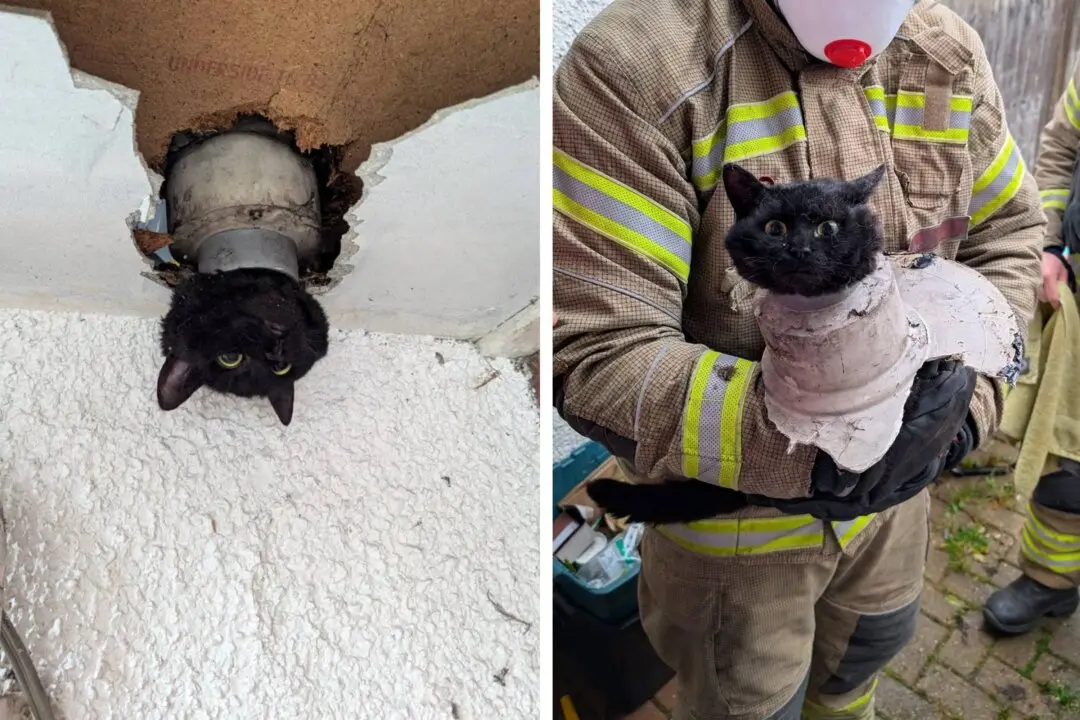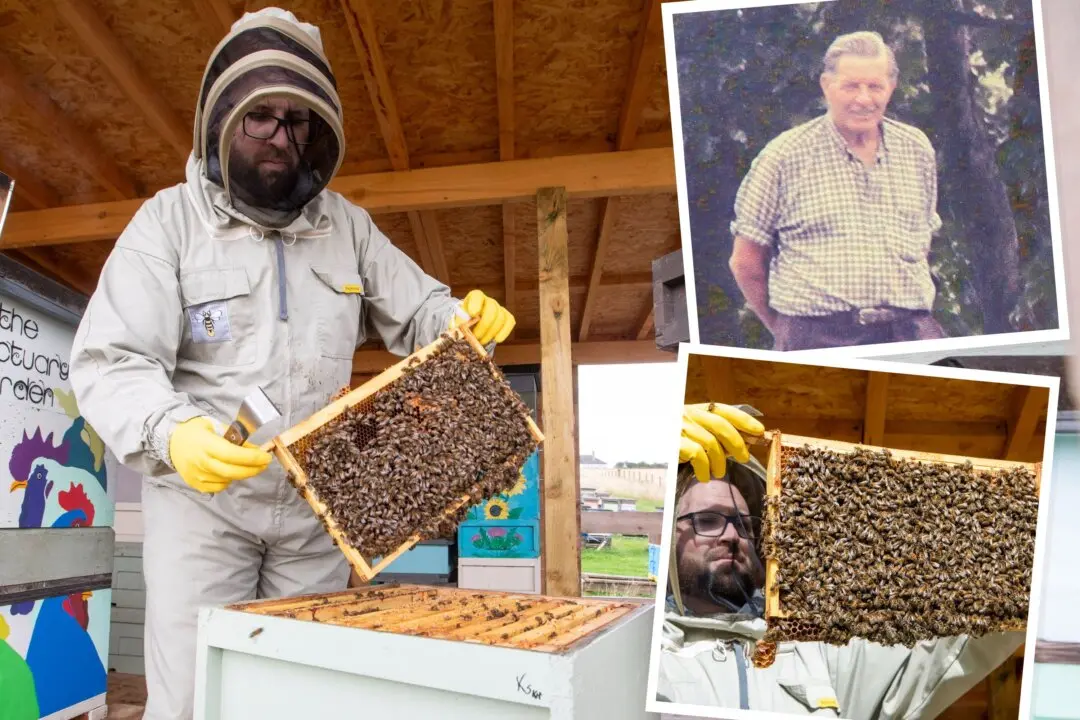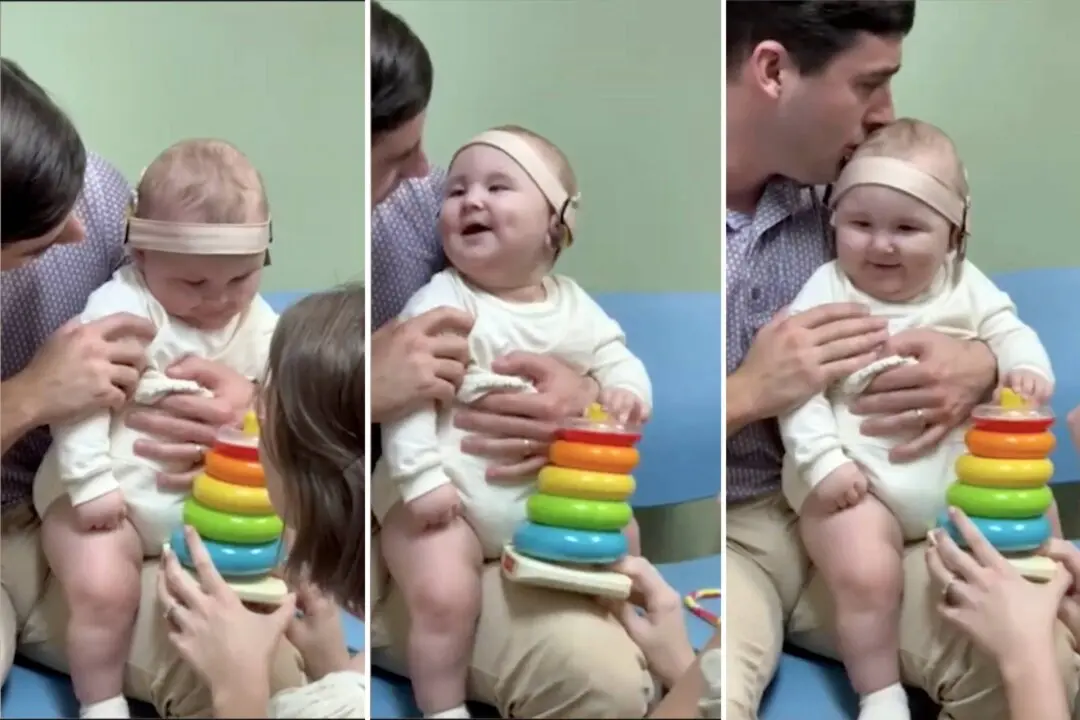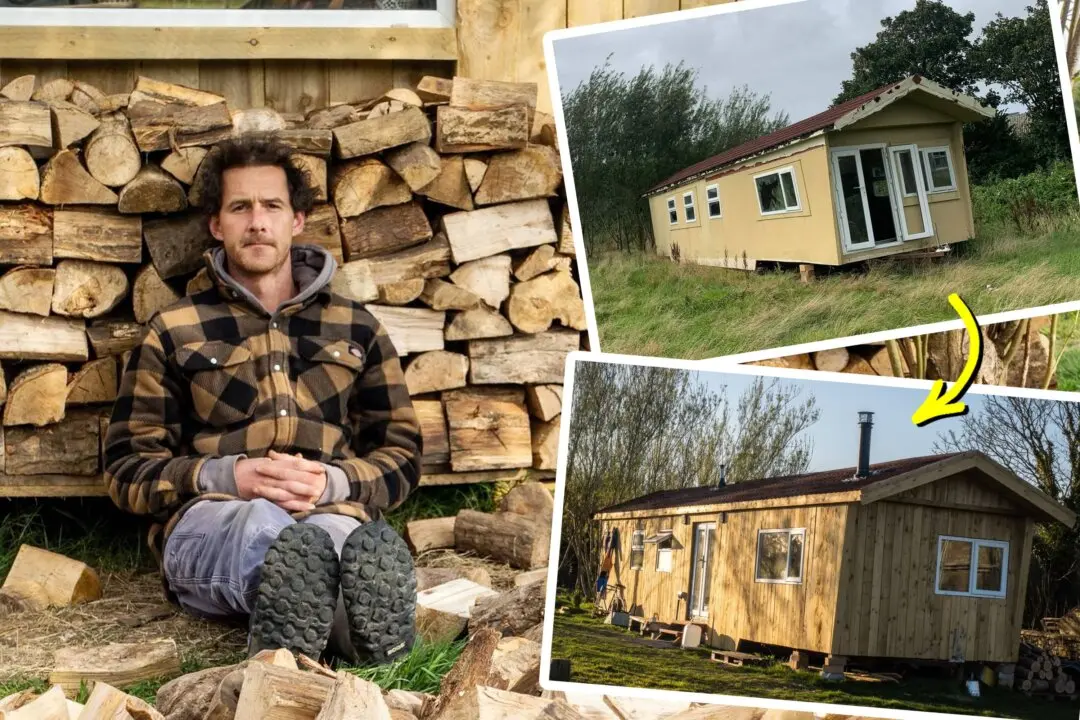A little girl has been nicknamed “Fluffy” by her preschool pals for her frizzy hair—she is one of only 100 people in the world with “uncombable hair syndrome” (UHS).
Layla Davis, aged 3, hit the headlines while just a tot for her blonde locks, which cannot be combed flat. Now she has just started at nursery where her frizzy hair has led to her being nicknamed Fluffy.





